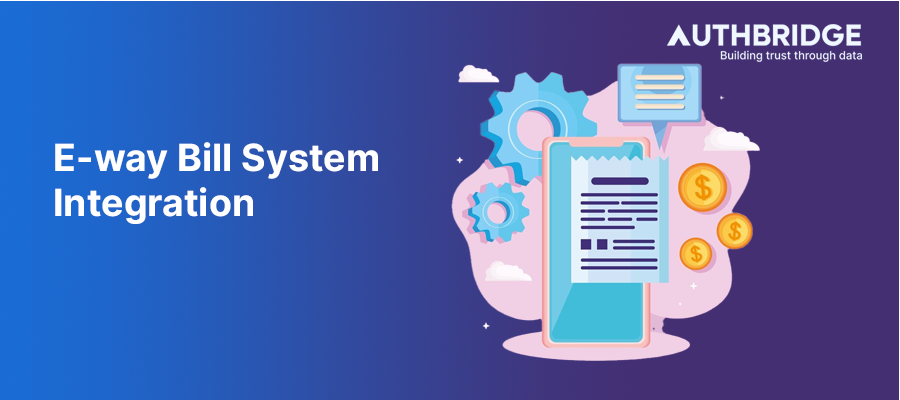E-Way Bill System Integration: Boost Efficiency And Compliance In Your Business

E-way bill system integration essentially refers to the process of connecting your existing business systems, such as accounting software, logistics management systems, or e-commerce platforms, with the official e-way bill portal (https://ewaybillgst.gov.in/). This integration enables seamless data exchange and automates various functionalities, transforming how you generate, manage, and track EWBs.
Benefits of E-way Bill System Integration:
- Enhanced Efficiency:
- Automated EWB generation: Integration eliminates the need for manual data entry, automating EWB generation based on existing system data (product details, invoice information, etc.). This saves time, minimizes errors, and improves overall efficiency.
- Streamlined data exchange: Seamless data transfer between your systems and the e-way bill portal ensures accuracy and eliminates the need for manual data entry across different platforms.
- Improved logistics management: Real-time updates on EWB status within your systems allow for better tracking and management of goods movement, facilitating timely deliveries and informed decision-making.
- Reduced Manual Work and Errors:
- By automating EWB generation and data exchange, integration minimizes manual tasks and data validation processes, significantly reducing the risk of human errors that could lead to inconsistencies and potential non-compliance issues.
- Elimination of duplicate data entry across different systems frees up valuable resources and minimizes the possibility of discrepancies between EWBs and related documents.
- Improved Compliance Management:
- Integration ensures timely generation and accurate data entry for EWBs, minimizing the risk of penalties for non-compliance with GST regulations.
- Real-time access to EWB data within your systems facilitates efficient record-keeping and simplifies responding to potential audits or tax inquiries.
- Increased Visibility and Transparency:
- Integration allows businesses to track the status of EWBs and access real-time updates within their existing systems, enhancing visibility into the movement of goods.
- This improved transparency fosters trust and collaboration within the supply chain, allowing all stakeholders to track shipments and make informed decisions.
Data and Statistics:
- As of December 2023, the e-way bill portal statistics show over 14.5 billion EWBs generated, highlighting the system's widespread adoption and the increasing need for efficient management solutions.
- A report by the Confederation of Indian Industry (CII) states that 78% of businesses in India report experiencing significant efficiency gains by integrating EWB functionalities with their existing systems.
Table 1: Benefits of E-way Bill System Integration
Benefit | Description |
Enhanced Efficiency | Automation of EWB generation, streamlined data exchange, improved logistics management |
Reduced Manual Work and Errors | Minimizes manual efforts, reduces data entry errors, eliminates duplicate data entry |
Improved Compliance Management | Ensures timely EWB generation and accurate data, simplifies record-keeping |
Increased Visibility and Transparency | Real-time tracking of EWBs within existing systems, fosters collaboration within supply chain |
Methods of E-way Bill System Integration:
- API Integration:
- Application Programming Interfaces (APIs) allow businesses to establish a direct connection between their systems and the e-way bill portal. This enables:
- Automated EWB generation: Sending data from existing systems (e.g., invoice information, product details) through APIs triggers EWB generation in the e-way bill portal.
- Real-time updates: Receiving updates on EWB status (e.g., approved, canceled, in transit) directly within your systems for improved visibility and timely responses.
- Third-party EWB Management Solutions:
- Businesses can utilize dedicated EWB management solutions offered by various vendors. These solutions typically provide:
- User-friendly interface: Facilitates easy EWB generation, management, and tracking within a dedicated platform.
- Integration capabilities: These solutions often offer built-in integration capabilities with various accounting, logistics, or e-commerce platforms, simplifying data exchange and streamlining workflows.
- Additional features: Some solutions may offer additional features like bulk EWB generation, error validation, and compliance checks.
Choosing the Right Integration Method:
The most suitable integration method for your business depends on various factors:
- Technical expertise: Consider the level of technical expertise available within your organization to manage API integrations.
- Business requirements: Analyze your specific needs regarding functionalities, data volume, and desired level of customization.
- Budgetary constraints: Evaluate the costs associated with different integration solutions, including API development, subscription fees for third-party platforms, and potential consultation or implementation expenses.
Table 2: Comparison of E-way Bill System Integration Methods
Method | Description | Advantages | Disadvantages |
API Integration | Direct connection between your systems and the e-way bill portal. | High level of customization, real-time data exchange, flexibility | Requires technical expertise, may involve development costs |
Third-party EWB Management Solutions | Utilizes dedicated software platforms. | User-friendly interface, readily available integrations, additional features | May have subscription fees, limited customization options |
Additional Considerations for E-way Bill System Integration:
- Data security: Ensure the chosen integration method employs robust security measures to protect sensitive business and customer data.
- Data mapping: Carefully map data fields between your existing systems and the e-way bill portal to ensure accurate data transfer and avoid inconsistencies.
- Testing and training: Thoroughly test the integration to ensure functionality and provide adequate training to relevant personnel within your organization.
Conclusion:
E-way bill system integration offers businesses significant benefits in terms of efficiency, compliance, and transparency. By carefully evaluating their needs and choosing the appropriate method, businesses can leverage technology to seamlessly integrate EWB functionalities with their existing systems and unlock the full potential of the e-way bill system in the Indian GST regime.
Disclaimer: The information provided in this blog post is intended for general informational purposes only and should not be construed as professional legal or tax advice. It is recommended to consult with a qualified tax professional for specific guidance on your business's E-way bill system integration requirements and implementation options.
Category

Abhinandan Banerjee
(Associate Manager - Marketing)
Abhinandan is a dynamic Product and Content Marketer, boasting over seven years of experience in crafting impactful marketing strategies across diverse environments. Known for his strategic insights, he propels digital growth and boosts brand visibility by transforming complex ideas into compelling content that inspires action.



